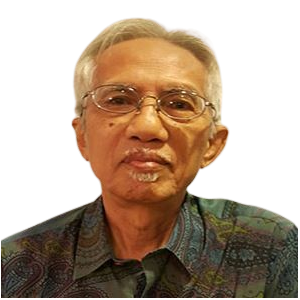Govt can still influence the judiciary through AG - Kadir Jasin
On March 3, Sinar Harian published a news article entitled 'PM guarantees the government will not interfere in court matters'. It is not an unusual statement from a prime minister although actions may speak otherwise.
The government does not have the right to intervene in court affairs or to disrupt the justice process.
A prime minister has special powers and the ability to influence the justice process.
For example, when Datuk Seri Najib Tun Razak was the prime minister, how did he manage to delay attempts to take him to court on the SRC International case in 2015?
He removed the attorney-general at that time, Tan Sri Abdul Gani Patail and replaced him with a candidate of his choice, Tan Sri Mohamed Apandi Ali who was appointed on July 27, 2015 and on Jan 25, 2016, the court announced there was no case involving Najib.
He was one of the first high-ranking government officials to popularise the myth of receiving donations from an Arab royal family.
The power to propose the attorney-general to the Yang di-Pertuan Agong is in the hands of the prime minister.
So far Datuk Seri Ismail Sabri Yaakob has maintained the service of the current attorney-general, Tan Sri Idrus Azizan Harun who was appointed during Tan Sri Muhyiddin Yassin's administration.
We need to understand that the Prime Minister and the government have powers to influence matters linked to justice and the judiciary through the attorney-general.
In his role as a public prosecutor, it is the responsibility of the attorney-general to determine whether a case can be prosecuted in court and the right to amend or withdraw the case.
One of the best examples in 2020, the Kuala Lumpur Sessions Court ordered to free Najib's stepson Riza Aziz of five money laundering charges linked to 1MDB funds involving US$248 million (RM1.25 billion).
The decision was achieved through representations submitted to the attorney-general's chambers. Most recently, the government withdrew an application to seize almost RM16 million from the accounts of the wife and four children of former Tabung Haji chairman Datuk Seri Abdul Azeez Abdul Rahim and a shop owned by their company, Azeera Management Consultants (M) Sdn Bhd. The decision was made by the attorney-general's chambers.
As the attorney-general is also the public prosecutor, he can be described as the most influential person after the Yang di-Pertuan Agong and the prime minister.
Not interfering with judicial affairs does not mean the prime minister loses his power or that justice will not prevail without any disruption.
We have to understand that a juridical affair is a part of the legal process involving many parties and the cases take time.
Take the trial of SRC International Sdn Bhd against Najib as an example, a police report was lodged as early as December 2014 and the trial was still ongoing seven years later although Najib has been found guilty and sentenced by two courts.
During this process, Najib is still in politics and at recently he made a claim that not a single cent of the public funds were used to pay the 1MDB-linked debts.
Denying Najib's allegations, Finance Minister Tengku Datuk Seri Zafrul Tengku Abdul Aziz said the government had paid RM6.5 billion in interest and this does not include the principal debt as it is yet to mature.
Any government revenue, including 1MDB money, returned and all forms of taxes from the rich or the poor, will go into the government's Consolidated Fund.
From this fund, salaries and pensions of civil servants are paid, government debts are paid off and government assets are maintained.
Back to the judiciary, whether it's good or bad that is the best system we have. For many, it gives the impression that the court is slow in taking action on the rich.
In conclusion, we can say that although the prime minister has pledged not to interfere in judicial affairs, the reality is that the government can still influence the decision through the attorney-general. Wallahuak'lam
Kadir Jasin is a veteran journalist.
The views expressed in the article are author's own and do not necessarily reflect those of Sinar Daily.















